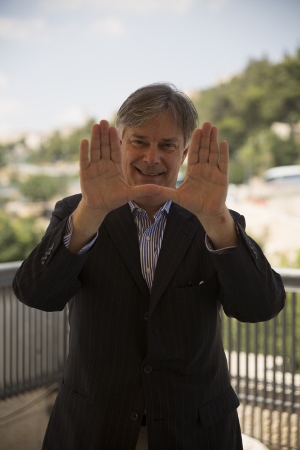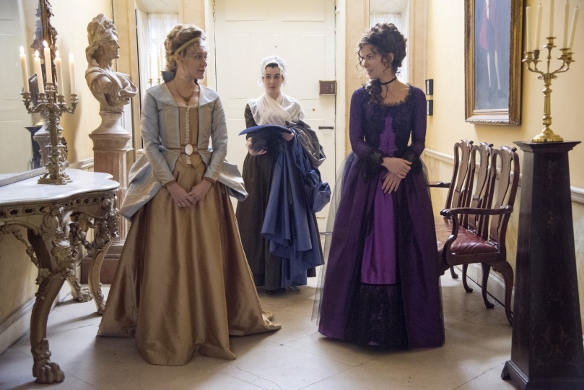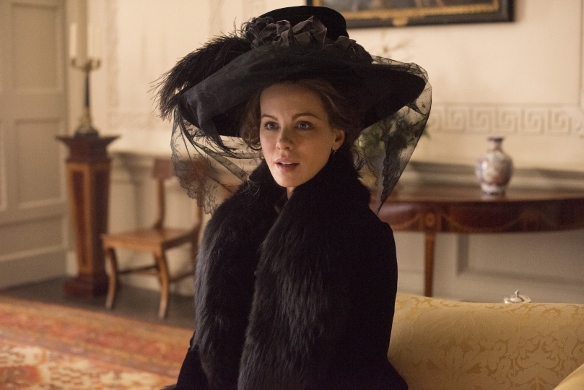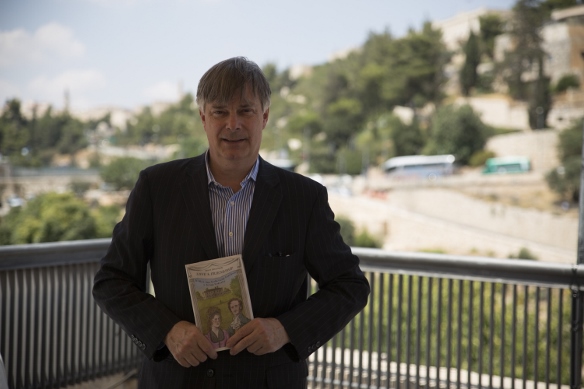As comic as they are perceptive, Whit Stillman’s films are a social commentary on our time, and enormously entertaining. His new film, Love & Friendship, premiered at the Jerusalem Film Festival, with Stillman in attendance as one of the festival’s honored guests. An adaptation of Jane Austen’s little-known epistolary novella Lady Susan, Love & Friendship is a high-velocity hilarious romp with a beguiling demeanor, trenchant wit, and vitriolic social critique.

From Metropolitan (nominated for an Academy Award for Best Original Screenplay in 1990), to Barcelona (1994), Last Days of Disco (1998) and Damsels in Distress (2012), Stillman has chronicled the romantic, intellectual, social and moral adventures of the educated, fairly well-to-do twenty-somethings (or “urban haute-bourgeoisie” to quote Metropolitan). One might consider Stillman as a filmmaker to be the artistic descendant of that witty observer of social mores from another era, Jane Austen. In conversation with Whit Stillman, who is as elegant, gracious and playful in person as his films suggest, the filmmaker soon confirmed that his affinity for Jane Austen is long-standing and deep. Yet his first encounter with Austen was not what one might expect.
“I was at Harvard in a very depressed state,” Stillman said, “I had just been dumped by a girl, who led me on, and I was feeling very depressed and I wanted to leave Cambridge, go to Mexico and learn Spanish. And I picked up a Jane Austen novel and started reading it. It was completely the wrong novel to read at that stage, it was Northanger Abbey. I had never read a Gothic novel, I had no idea what she was doing. I thought she was blahhh. Bad, overrated… I did all that whining.”
It was not until later, when he read Sense and Sensibility on his sister’s recommendation, that Stillman acquired his appreciation for Austen’s writing.

Stillman’s favorite Austen?
“The three wonderful ones,” he said, “which I wouldn’t want to choose between them: Pride and Prejudice, Persuasion, Mansfield Park. Emma is the one the professors and critics love.”
In Love & Friendship, Stillman has taken Austen’s text and brought it to vivid life, fulfilling the potential inherent in what, since Austen did not publish Lady Susan in her lifetime, the author perhaps did not consider a finished work equal to her best writing. Stillman worked very freely with Austen’s text, writing new dialogue, adding and expanding characters.
“What I felt liberated by,” said Stillman, commenting on the adaptation, “is that I completely identify with Jane Austen’s point of view. There’s not a sentence in Jane Austen that I don’t agree with on some level. There’s no other writer like that for me.”
“And I do love Fitzgerald, I love Salinger, I do love Waugh, I love Balzac, but I don’t identify with them in the same way. But with Jane Austen I completely agree with her. There’s nothing that… when you read her letters, no, there’s some separation there, but what she wrote for publication from Lady Susan on…”
When asked what, in his opinion, is the essence of Jane Austen, Stillman did not hesitate in his response.
“I think virtue is the essence of Jane Austen,” he replied, “comic virtue. If you were writing a book on her work I think ‘Comic Virtue’ would be the right title… Let’s say… One loves Fitzgerald but Fitzgerald is sensibility without sense, it’s not sensible. It’s very romantic and very alluring, but there is nothing very comic about him, and nothing very sensible. And then Salinger has many Jane Austen qualities. One of the things that kind of encourages me, is that all the writers I admire, admire their predecessors. There is kind of a chain of being of these writers – I put it on the blackboard in Damsels in Distress, in the dandy tradition in literature, they’re all there all the names I love are there, and they all love each other going backward in time.”
Discussing the writing process and perspective, Stillman commented, “When I write too much I find I write productively for a very short period of time and then I get into drivel and with Salinger he’s going off into drivel… [Regarding Austen] I think her perspective is fascinating: the perspective of the rectory. If you’re talking about a good spot to observe a village and a community, it would be from the rectory, the rectory of an established church. And then I think it was memories of the rectory. Her great period of writing was after her father died, she was back in a country village supported by her wealthy brother. She was taking things she had started in the rectory with her father.”

Given the character of Lady Susan, the protagonist in Love & Friendship (read more about her here) I could not resist asking Whit Stillman: Would you describe Lady Susan as a virtuous woman?
“Not at all,” he smiled, “And that’s probably why Jane Austen stopped working on it, because she couldn’t get her head around how to have this immoral character as a central character and for it to work. Jane Austen could go on and write exactly the Jane Austen work she wanted to write, she had that freedom. She could go on and write Persuasion and all the other novels she had in mind. She didn’t have to settle for the only Jane Austen that hadn’t been adapted. I had to settle. I couldn’t write a Jane Austen novel from scratch.”

And yet, Stillman has written an eponymous novel based on his film, which has been published in the UK by Jane Austen’s publishers, John Murray. Stillman further commented: “I think now things have gotten so bad that even an amoral Jane Austen novel story is adding to the tone of virtue. We’re so low, that this is actually a virtuous project these days.”
Love & Friendship is a wonderfully entertaining film, with memorable characters and an outstanding cast that includes Kate Beckinsdale as Lady Susan, reunited with her Last Days of Disco co-star Chloe Sevigny, a lively cameo by Stephen Fry and a brilliant comic turn by Tom Bennet as Sir James Martin, a bit of a ‘rattle’.
Love & Friendship opens in Israeli theatres on Thursday, July 14, 2016.
Love & Friendship
Written and directed by Whit Stillman, based on Jane Austen’s unfinished novella “Lady Susan”; Cinematography: Richard van Oosterhout; Editor: Sophie Corra; Music: Benjamin Esdraffo, Mark Suozzo; Production designer: Anna Rackard; Art director: Louise Mathews; Costume designer: Eimer Ni Mhaoldomhnaigh; Cast: Kate Beckinsale, Xavier Samuel, Morfydd Clark, Emma Greenwell, Tom Bennett, James Fleet, Jemma Redgrave, Justin Edwards, Jenn Murray, Stephen Fry, Chloe Sevigny.





